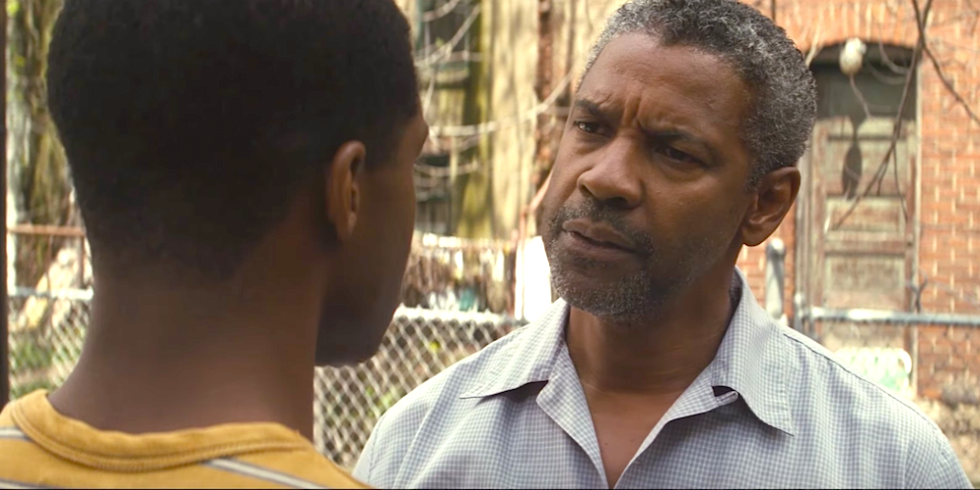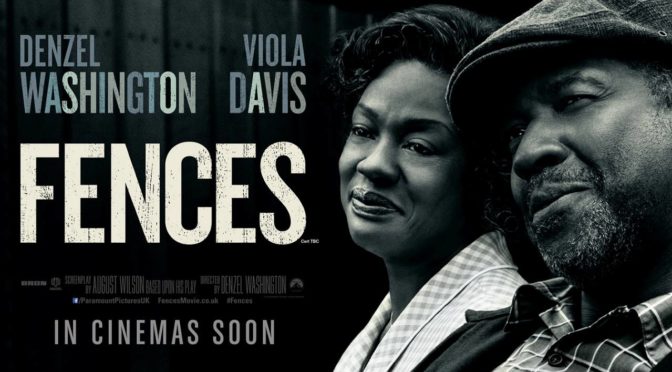Broadway to big-screen, Denzel Washington directs and stars in his adaptation of August Wilson’s hit play. He is Troy, a former minor league baseball player now working as a garbageman. He lives with his wife (Viola Davis; The Help) who takes care of him and his teenage son. The film centers on Troy as the bombastic patriarch of the family. He prattles on about his failed career as a professional athlete and lectures, or in many cases berates, his son for no apparent reason. His existence is fairly routine until key events change his relationships and his life forever.
At its heart, Fences is an acting showpiece. Washington and Davis have both performed these roles on Broadway many times and their experience is obvious. They know these characters inside and out and could deliver their performances in their sleep. Fortunately, their familiarity doesn’t lead to any complacence. Washington is obviously having a good time playing Troy. He happily rambles on telling the same pompous stories he has told a thousand times over. His only disruption is Davis interjecting truth into his tales. “That didn’t happen” is her most common line. Yet, as he incessantly continues, Washington hints that there is something deeper that leads to his behavior. That there are failures that require him to overcompensate. Even as the character becomes increasingly unlikable through his actions, Washington prevents him from turning completely unsympathetic.

Viola Davis is the real standout of the film. Her task is probably the most difficult as she has to balance the roles of loving homemaker and fed-up wife. Either could easily descend into caricature, but she easily balances the two with nuanced acting. Her scenes as a caring mother still show signs of a tough, no-nonsense woman that make her character’s growth believable. In climactic moments, her performance easily topples Washington’s and proves that her skill can imbue even the showiest scenes with veracity.
Beyond its acting, Fences doesn’t have much to offer. Washington has stated in interviews that he did not want to change much to adapt the play to the screen, but the end product suffers for this decision. Instead of taking full advantage of the format, the film is little more than recorded version of a well-acted play with decent production design. As a director, Washington offers no new insights or unique takes on the material with no particular panache to be found. The entire film takes place in one house with meager variation to the staging. Each scene is filmed plainly to prevent anything distracting from the performances. With so little added, it’s curious why this adaptation was even necessary. The play was already popular and the new format isn’t bringing any further value. The emphasis is so heavily placed on the acting that it can at times be a detriment. Washington’s performance can veer into “look at me!” territory where his confidence becomes irksome self-satisfaction. The story and the majority of the acting are strong, but, as a film, Washington’s banal direction prevents Fences from eclipsing its theatrical origins.

3/5 stars.
